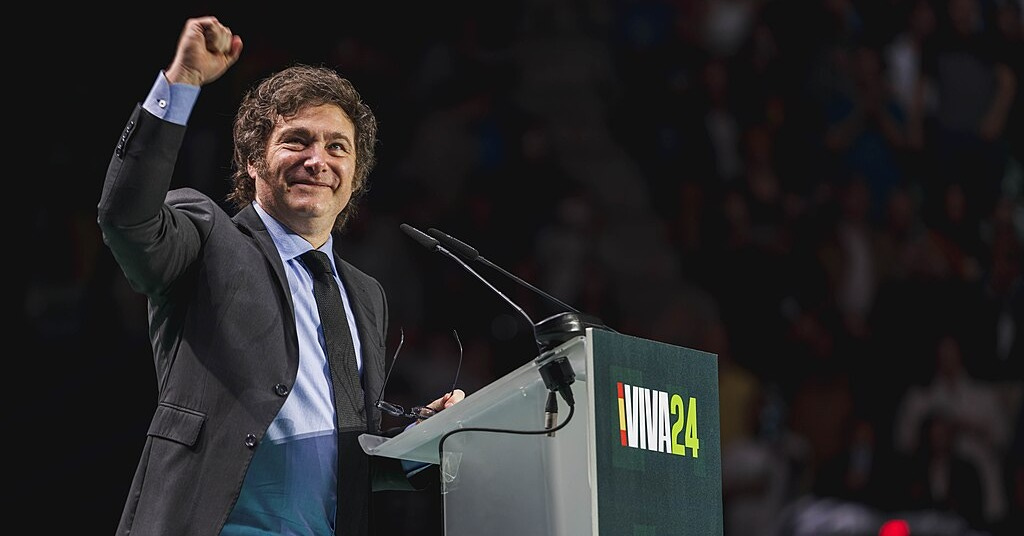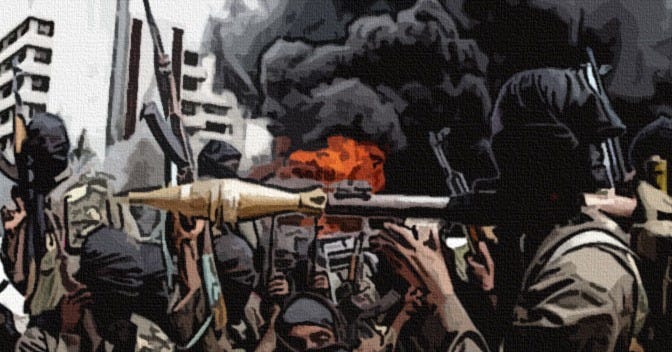Milei Stumbles, Macron Falters, the World Holds Its Breath
A week of political earthquakes exposes democratic fragility as Argentina's president suffers electoral defeat, France's government collapses, and security crises deepen across continents.
A cascade of political upheavals swept major democracies this week, exposing the fragility of governance in an era of economic strain and rising populist pressures. Argentina's President Javier Milei suffered a crushing 13-percentage-point defeat in Buenos Aires provincial elections, with his libertarian party capturing just 34% against the Peronist opposition's 47%. France plunged deeper into crisis as Prime Minister François Bayrou lost a confidence vote 364-194, collapsing the government over a €44 billion austerity budget and forcing President Emmanuel Macron to find his fourth premier in 12 months. In Gaza, Israel escalated with warnings of a "mighty hurricane" of strikes against Hamas, while Nigeria endured another Boko Haram massacre that killed at least 55 civilians in Borno State. Thailand gained stability as Parliament elected Anutin Charnvirakul as prime minister, though he faces a tense Cambodian border situation and promised elections within four months. These crises underscore how economic pressures, security threats, and institutional fragility are testing democratic resilience across continents.
Americas: Milei's Reality Check in Buenos Aires
Image: Javier Milei at his inauguration in the Salón Blanco in 2023 (photo: Cancillería Argentina / CC BY 2.0)
Argentina's President Javier Milei acknowledged a "clear defeat" as his La Libertad Avanza party won just 34% of the vote in Buenos Aires province, trailing the Peronist coalition by 13 percentage points. The result represents a major setback for the libertarian economist who swept to power promising radical economic transformation through fiscal shock therapy.
Markets reacted swiftly to the defeat, with Argentine assets plunging as investors questioned Milei's political sustainability. The peso fell nearly 5% against the dollar while the benchmark stock index dropped 10.5%, reflecting fears that reform momentum could stall before October's crucial midterm elections.
The electoral rebuke comes despite Milei's success in bringing down Argentina's triple-digit inflation, as voters have yet to see the economic revival promised to follow his harsh austerity measures. The government has been shadowed by a corruption scandal involving the president's sister and right-hand woman, Karina Milei, while unemployment figures are at their highest since the COVID pandemic.
Buenos Aires Governor Axel Kicillof, a fierce Milei critic, emerged strengthened by the victory and positioned as a potential future Peronist leader. Former President Cristina Fernández de Kirchner gloated over the results, telling Milei to "get out of your bubble, brother ... things are getting heavy."
The defeat exposes Argentina's recurring pattern: reformist presidents underestimate the thin social margins in a country battered by serial crises. Carlos Menem's 1990s liberalization ended in collapse; Mauricio Macri's 2016-19 adjustment unraveled amid recession. For Milei, maintaining market credibility while building legislative support represents the central challenge ahead.
Our Take: Argentina's credibility with markets is razor-thin. A sustained perception that Milei cannot convert votes into legislative support risks another downward spiral—with spillovers to neighbors tied to Argentina's trade and financial cycles. The pattern of reform failure suggests deeper structural issues beyond any single leader's policy choices.
Europe: French Parliament Ousts Bayrou, Government Collapses
Image: Assemblée nationale française, Palais Bourbon, Paris (photo: NonOmnisMoriar / CC BY-SA 3.0)
French Prime Minister François Bayrou was overwhelmingly ousted Monday in a 364-194 confidence vote, collapsing his minority government after just nine months in office. The defeat came after Bayrou staked his survival on a controversial budget plan requiring €44 billion in cuts to reduce France's deficit from 5.8% to 4.6% of GDP.
Parliament rejected Bayrou's appeal despite his warning that France faced "life-threatening" debt, with the prime minister declaring: "You have the power to bring down the government, but you do not have the power to erase reality." At the end of the first quarter of 2025, France's public debt stood at €3.346 trillion, equal to 114% of gross domestic product.
The collapse marks France's second government failure in less than a year, following Michel Barnier's December ouster. President Emmanuel Macron now faces the task of appointing his fourth prime minister in 20 months, with limited palatable options as opposition parties signal they would immediately challenge another centrist appointment.
Investors have grown rattled, with yields on French government bonds rising above those of Spain, Portugal and Greece—countries once at the heart of the eurozone debt crisis. Far-right leader Marine Le Pen called for snap elections, confident her National Rally would emerge victorious.
The crisis stems from Macron's failed gamble in dissolving the National Assembly in June 2024, which produced a fragmented legislature with no dominant bloc for the first time in France's modern republic. The instability comes at a critical moment for Europe, facing wars in Ukraine and the Middle East while needing coordinated responses to economic and security challenges.
Our Take: Europe's ability to act now hinges on France. A misstep in Paris could narrow Europe's already thin margin between deterrence and drift. With Berlin absorbed by economic troubles and London sidelined, a drifting France leaves Europe without a clear coordinator when leadership is most needed.
Middle East: Israel Warns of "Mighty Hurricane" Escalation in Gaza
Image: Gdud 97, July 2025 (photo: Israel Defense Forces / CC BY-SA 3.0)
Israel delivered its starkest ultimatum in months, with Defense Minister Israel Katz warning that "a mighty hurricane will hit the skies of Gaza City today" unless Hamas releases hostages and surrenders. Prime Minister Benjamin Netanyahu told Gaza City residents to "leave now" as forces prepared for an expanded ground offensive.
The Israel Defense Forces struck several high-rise buildings in Gaza City following Katz's warning, with the military saying Hamas had used the structures for surveillance and planted explosive devices nearby. Israeli strikes and ground operations Monday killed at least 40 Palestinians, including journalist Osama Balousha.
The escalation follows President Donald Trump's weekend ultimatum to Hamas, declaring Israel had accepted his ceasefire terms and warning the militant group this was their "last chance." According to a senior Israeli official, the latest U.S. proposal calls for Hamas to release all 48 remaining hostages on the first day of a ceasefire.
The war has devastated Gaza, with more than 64,000 Palestinians confirmed killed according to health officials, while six more Palestinians died of malnutrition Monday, raising such deaths to at least 393 people. Hamas has long insisted it will not lay down arms until negotiations guarantee an end to the war and Israeli withdrawal.
The tactical dilemma persists: Israel can destroy infrastructure and leadership nodes, but translating military gains into sustainable political outcomes remains unresolved. Each escalatory cycle risks deepening humanitarian collapse while inviting wider regional confrontation from Iranian-aligned groups.
Our Take: The humanitarian threshold is the thin line. If crossed decisively, Israel could achieve tactical victories while suffering strategic erosion—fueling radicalization, straining normalization tracks, and prolonging instability. Military pressure without diplomatic progress risks pyrrhic outcomes.
Africa: Boko Haram Massacre in Nigeria Deepens Sahel Instability
Boko Haram militants killed at least 55 people, including six soldiers, in a brutal Friday night assault on Darul Jama village in Borno State. The attackers arrived on motorcycles, shooting indiscriminately and setting homes ablaze in the village near the Cameroon border.
Image: AK Rockefeller / Flickr, “Boko Haram (7219441626).jpg,” licensed under CC BY-SA 2.0
Many victims were families recently relocated from displacement camps under the government's controversial "return to communities" policy, with one survivor lamenting: "The government told us we would be safe here." Residents had warned authorities for three days about suspicious militant activity, but no reinforcements were sent.
According to Good Governance Africa, over 300 attacks occurred in the first half of 2025 alone, killing at least 500 civilians, mostly at the hands of ISWAP—Boko Haram's splinter group. President Bola Tinubu ordered a review of military operations against terrorists following the latest massacre.
The attack underscores Nigeria's layered security crisis: jihadist violence in the northeast, criminal gangs in the north-central regions, and kidnapping threats to foreign investment. Boko Haram has been waging a bloody campaign since 2009, killing about 40,000 people and forcing more than two million to flee their homes.
Nigeria's internal stability remains crucial for regional security architecture, particularly as the Sahel faces expanding jihadist networks. The government's struggle to protect resettled populations highlights the gap between policy ambitions and security capabilities across the Lake Chad basin.
Our Take: Nigeria's internal cohesion is the line to watch. Simultaneous pressures from jihadists, organized crime, and economic stress could stretch the federation's resilience to a breaking point—with regional consequences. The failure to protect resettled populations undermines confidence in state capacity.
Asia-Pacific: Thai King Endorses Anutin as PM Amid Border Tensions with Cambodia
Thailand's Parliament elected Anutin Charnvirakul as prime minister Friday with 311 votes, making him the country's third leader in two years. The 58-year-old Bhumjaithai Party leader received royal endorsement Sunday after promising to dissolve Parliament within four months.
Image: Anutin Charnvirakul in September 2025
Anutin's rise followed the Constitutional Court's removal of Paetongtarn Shinawatra over ethics violations related to a leaked phone call with Cambodia's Hun Sen during a border dispute. The controversy erupted in June when audio emerged of Paetongtarn criticizing a Thai military commander responsible for border security.
Anutin immediately announced key cabinet appointments, including veteran diplomat Sihasak Phuangketkeow as foreign minister and experienced economist Ekniti Nitithanprapas as finance minister. Cambodia's Prime Minister Hun Manet congratulated Anutin, expressing hopes to "restore relations to normalcy" and "rebuild mutual trust."
The new government faces immediate challenges: a sputtering economy forecast to grow just 2% this year, hit by Trump's trade policies, and the delicate border situation with Cambodia following a deadly five-day armed conflict in July.
Anutin secured support from the progressive People's Party in exchange for his promise of early elections and constitutional reform, though the party will remain in opposition. His brief tenure will test whether Thailand can stabilize its politics while managing external pressures from both economic headwinds and regional tensions.
Our Take: The frontier is the pressure point. Missteps could turn nationalist fervor into a renewed clash, paralyzing ASEAN diplomacy and rattling supply chains. Anutin's four-month timeline offers little room for substantive policy changes but enough time for diplomatic miscalculations.





